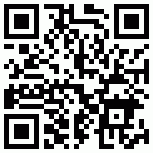Iranian Foreign Minister Mohammad Javad Zarif warned of coronavirus in Iran stressing that the disease has been worse in the country due to the US sanctions.

 QR code
QR code

FM Zarif raps US sanctions worsening coronavirus in Iran
26 Oct 2020 - 21:27
Iranian Foreign Minister Mohammad Javad Zarif warned of coronavirus in Iran stressing that the disease has been worse in the country due to the US sanctions.
“Corona's proven deadly, vicious & brutal everywhere, but it's worse in Iran as it has a cruel collaborator: U.S. regime,” tweeted the Foreign Ministry.
It added, “U.S. has elevated maximum pressure to Health Terrorism & targeted Iranian people with inhuman sanctions while they're fighting the pandemic. We'll overcome but NEVER forget.”
The ministry also posted a video showing the impact the sanctions had on Iran’s humanitarian trade, which the U.S. claims to be exempt from sanctions. But Iranian officials said many times that the U.S. sanctions have impeded the humanitarian trade with Iran.
“U.S. has gone from sabotage and assassinations to waging an economic war and economic terrorism on Iranians – to medical terror amidst Covid-19. This even exceeds what would be permissible on the battlefield. STOP aiding WAR CRIMES. STOP obeying IMMORAL and ILLEGAL U.S. sanctions,” Foreign Minister Mohammad Javad Zarif tweeted in late March.
United Nations experts have confirmed that U.S. sanctions have impinged on many countries’ abilities to combat the Covid-19 pandemic.
“People in countries under sanctions cannot protect themselves against COVID-19 or get life-saving treatment if they fall ill because humanitarian exemptions to the sanctions are not working,” UN human rights experts said in a report on August 7, 2020.
“Sanctions are bringing suffering and death in countries like Cuba, Iran, Sudan, Syria, Venezuela and Yemen,” said Alena Douhan, special rapporteur on the negative impact of unilateral coercive measures on the enjoyment of human rights. “Sanctions should be lifted – or at a minimum eased – so people can get basics like soap and disinfectants to stay healthy, and so that hospitals can get ventilators and other equipment to keep people alive.”
The U.S. claimed on many occasions that its sanctions on Iran do not include the humanitarian trade. And in fact, the U.S. even sought to portray itself as the facilitator of this trade by launching a humanitarian trade channel in collaboration with Switzerland.
But, in reality, firms and individuals involved in humanitarian trade have chosen to avoid dealing with Iran out of fear of running afoul of U.S. secondary sanctions. Besides, the U.S. has set up a cumbersome process for the issuance of licenses for delivery of humanitarian goods.
The UN experts called for making this process easy.
“To guarantee human rights and solidarity in the course of the pandemic, licenses for delivery of humanitarian aid should be provided in the easiest way – preferably automatically upon request,” Douhan said. “Individuals and humanitarian organizations involved in the delivery of such aid should in no way be subjected to secondary sanctions.”
However, the U.S. keeps refusing to ease sanctions on Iran despite the coronavirus pandemic, which has killed tens of thousands of Iranian people. Iranian officials have repeatedly said the U.S.
sanctions on Iran amount to medical terror, with President Hassan Rouhani even calling the U.S. sanctions a “virus.”
Story Code: 479971